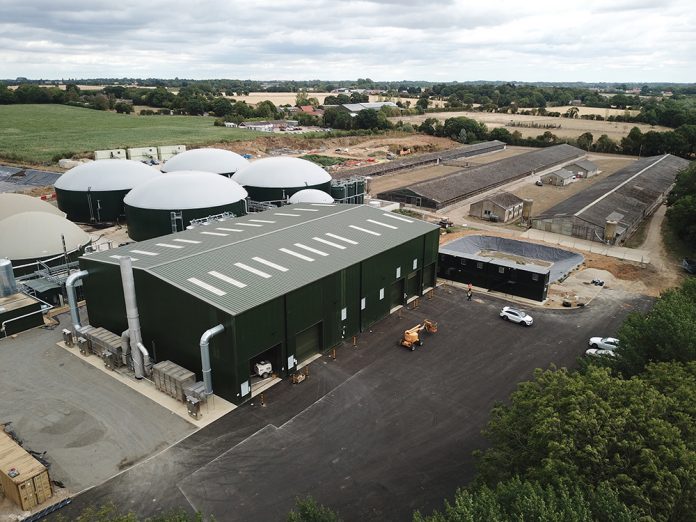An AD plant is helping transform a Norfolk town into the UK’s first green gas community.
Attleborough is the first neighbourhood in the country to benefit from a waste to energy gas system.
It follows two years of extensive works at an anaerobic digestion (AD) plant in the East Anglian town.
“A new expansion to the plant will enable organic waste from local homes and businesses to be processed to produce gas, which will be used by the town,” explains Chris Winward, CEO at Privilege Finance, which developed, funded and managed the £17m upgrade project.
“What sets this project apart is that Attleborough residents will be able to trace the source of their energy right back to the organic waste they have generated.
“It’s a great testimony to the people of Attleborough and will hopefully encourage other communities to follow suit,” he adds.
Plant development
Work began on the plant in August 2020 and is due to finish this winter. Once live, the plant will be run by expert AD plant operators, Eco Verde Energy (EVE).
“The upgrades will see the plant produce 1,000 cubic meters of green gas every hour which is enough to heat 4,000 Attleborough homes,” Chris added.
Four new digestion tanks, a waste reception hall, a depackaging unit and a gas upgrader are part of the plant’s new additions, with 100,000 tonnes of local organic waste forecast to be processed annually.
The plant will break down the local organic waste to produce biogas, which will be put through a gas upgrader to create biomethane. The biomethane — a molecular replica of natural gas — can be directly injected into the local gas grid to deliver a renewable source of energy to local residential homes and businesses.
The upgrade is very timely as England looks forward to mandatory food waste collections beginning in 2023. The facility will support the government’s targets for no more than 10% of municipal waste to be sent to landfill by 20351.
Chris says that, according to WRAP, the UK produces up to 9.5 million tonnes of food waste every year2. When food waste is sent to landfill to rot, it emits methane, a powerful gas which is 28-34 times3 more damaging than CO2.
“Projects such as Attleborough are really important for helping to reduce the amount of waste which is being sent to landfill and supporting the UK’s net zero ambitions,” he adds.
The upgrades mean that residents can trace their gas back to a renewable energy source, fulfilling a circular economy.
Chris points out, “The waste being produced by the people of Attleborough is being used to generate the gas they are using to heat their homes – effectively using their waste to run their heating and appliances. It’s a true closed loop.
“The plant has the ability to meet 100% of the town’s gas demands during the summer months and at least 50% of the demand during the colder, winter months,” he says.
“Locals will also be able to rest assured that carbon emissions from waste transportation will be reduced, as all collections will be processed in-county, therefore reducing any unnecessary transportation miles and cutting greenhouse gas emissions,” he says.
Residents are assured they will see no difference to their appliances or homes during the switchover process.
“An exciting future lies ahead for Attleborough. It is leading the way in renewable energy by becoming the first green gas community in the UK,” Chris concludes.





